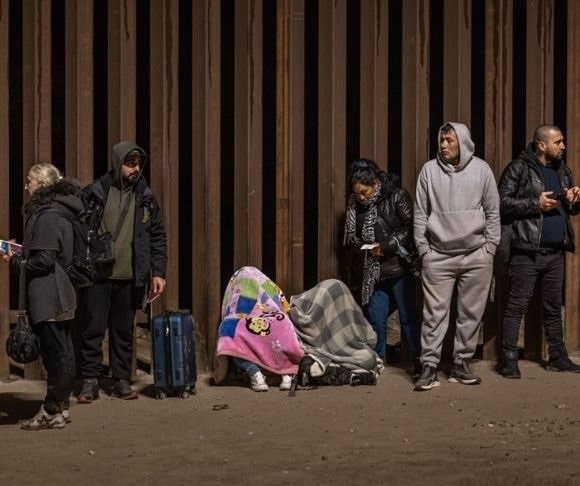Editor’s note: When it comes to immigration — illegal or otherwise — the American people have a right to be concerned. Each week, Liberty Nation author Kelli Ballard examines a contentious issue related to today’s hottest topic.
Isn’t technology grand? At least when it works. People today have a hard time getting from point A to point B without using their cell phone’s GPS systems. Technology advances so rapidly, it’s been a huge help in several areas, including law enforcement — and now border control. In Texas, the Brownsville border will now have biometric facial recognition to identify immigrants entering and leaving the country.
 This isn’t the first area to have the newest technology installed, however. There are about ten locations using it right now on the southwest border, and Customs and Border Protection (CBP) has said it is a “result of recommendations from the 9/11 Commission and it addresses Congressional mandates to biometrically record the entry and exit of non-U.S. citizens.”
This isn’t the first area to have the newest technology installed, however. There are about ten locations using it right now on the southwest border, and Customs and Border Protection (CBP) has said it is a “result of recommendations from the 9/11 Commission and it addresses Congressional mandates to biometrically record the entry and exit of non-U.S. citizens.”
The Nuts and Bolts
The biometric facial recognition program is considered non-invasive since it does not require collecting a DNA sample or touching a person in any way. It’s a quick and simple process, taking only seconds, and has more than a 97% accuracy rate.
Travelers pause for a moment in pedestrian lanes at the border where a photo is taken at the inspection point. The CBP officer compares it with government photos on file (passports, visas, and more) to make sure they are a match. If there are no records on file, this first photograph will be used to create a profile for the individual.
U.S. citizens are exempt from this process if they do not wish to participate. They can let the officer know when they reach the inspection area that they wish to opt out and would rather the document check be done manually.
CBP said:
“Facial biometrics bolster CBP’s entry and exit identification of travelers by enhancing CBP’s ability to secure the border and identify persons of interest, and strengthen reporting and analysis capabilities of travelers entering and departing the United States. Since September 2018, CBP has used biometric facial comparison to interdict more than 250 imposters who attempted to cross the Southwest Border using another person’s travel document.”
Public Charge Rule Now in Place
The Supreme Court ruled in favor of the Trump administration’s revised public charge rule on Feb. 24. While it is being touted as a “new” rule, it is just an update to previous legislation and clarifies that those coming to the United States must show they will not be a burden on our society by seeking financial and other state and federal assistance.
Opponents to the rule claim that it will prevent low-income families from seeking a life here by restricting them from aid. However, the public charge rule has been a part of this nation’s immigration policy for nearly a century, so that the American people would not be forced to support non-citizens.
A Felony to Encourage Illegal Immigration?

(Photo by Qian Weizhong/VCG via Getty Images)
Is encouraging illegal immigration a crime, or a matter of free speech? The jury is still out on this topic, but the Supreme Court may be about to rule on it.
As Liberty Nation’s Legal Affairs Editor Scott D. Cosenza said, “According to 8 U.S.C. § 1324(a)(1)(A)(iv), you are guilty of a federal crime if you encourage or induce ‘an alien to come to, enter, or reside in the United States, knowing or in reckless disregard of the fact that such coming to, entry, or residence is or will be in violation of law.’”
However, Evelyn Sineneng-Smith, a con artist who defrauded thousands of illegal immigrants who hoped to become legal residents of the U.S., is arguing that her right to free speech makes it impossible for her — or anyone else — to be convicted of such a crime. One of the hurdles is figuring out just what can be considered criminal. For example, if a grandmother in the United States tells her grandson to come over, even though he would be doing so illegally, is that grounds for a criminal charge?
There are different degrees to this, of course. Open border activists encourage illegal immigration openly and boldly, and some of these people are in office or running for office. Are they committing a felony or simply exercising their right to free speech?
~
Read more from Kelli Ballard.




